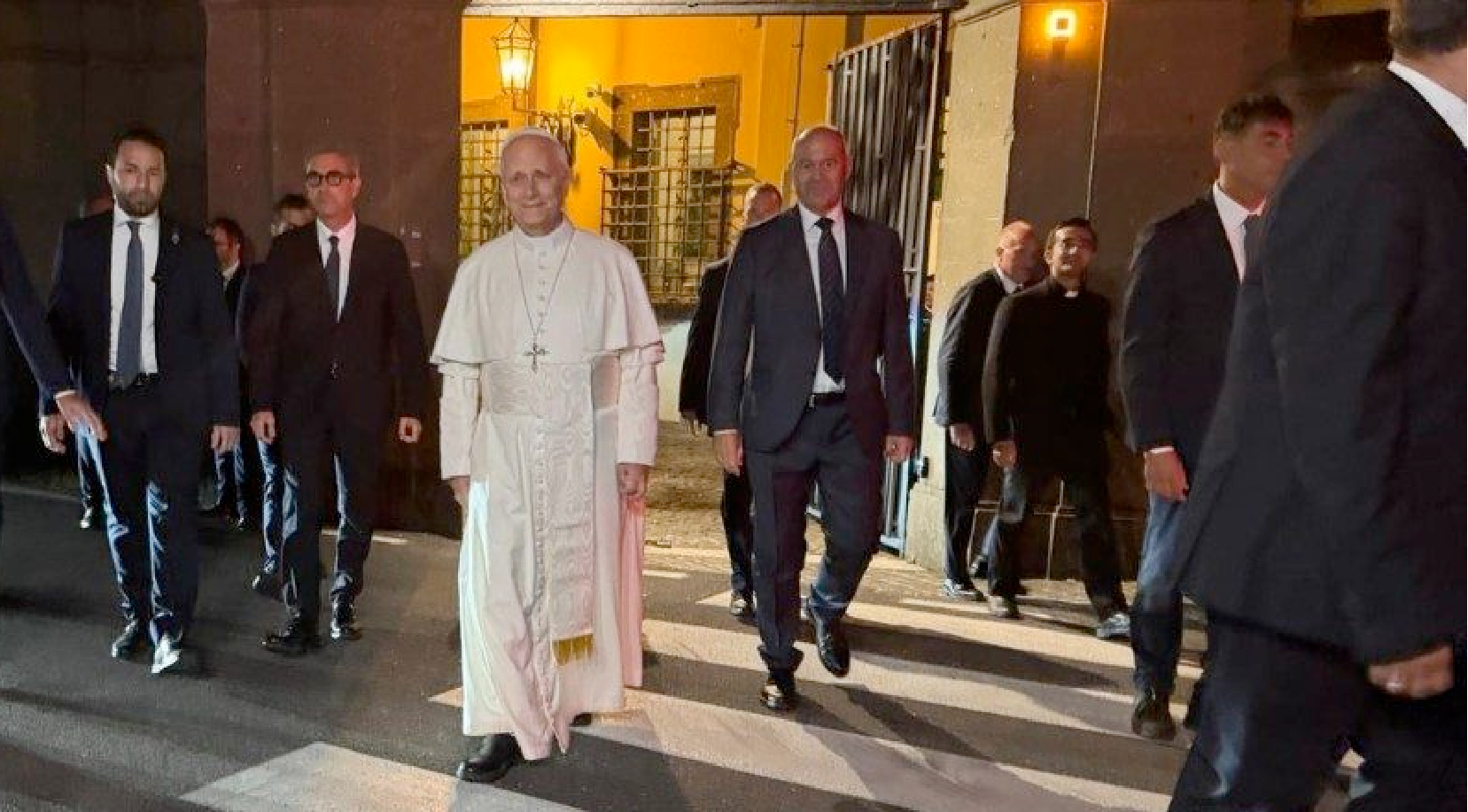(ZENIT News / Rome, 10.01.2025).- As dusk settled over the Alban Hills on Tuesday evening, Pope Leo XIV stepped out of Villa Barberini in Castel Gandolfo and paused, as he has done each week for the past month, to face the small circle of journalists waiting by the gates. What unfolded was a wide-ranging, unscripted conversation that touched on conflicts in the Middle East, nuclear tensions in Washington, financial accountability in the Vatican, and even a controversy involving one of America’s most prominent cardinals.
The Pope began with words of cautious encouragement regarding the proposed peace plan for Gaza, a 20-point framework unveiled by President Donald Trump with the endorsement of Israeli Prime Minister Benjamin Netanyahu. “There are interesting elements here,” Leo XIV noted, stressing the urgency of a ceasefire and the release of hostages. He added with deliberate hope: “We pray Hamas will accept within the established timeframe. For now, it seems a realistic proposal.”
But the situation on the ground, he warned, remains precarious. Asked about the flotilla carrying humanitarian aid toward Gaza—a mission that has sparked both anticipation and anxiety—the Pope acknowledged the gravity of the humanitarian crisis. His concern was that the convoy not be met with violence. “The people must be respected,” he said, underscoring that the desperate needs of civilians should not become the flashpoint for further bloodshed.
Turning to Washington, the Pope expressed unease over recent language from U.S. Defense Secretary Pete Hegseth, who convened military leaders “in battle dress” and raised the specter of nuclear deployment. Coupled with President Trump’s decision to rechristen the Pentagon from the “Department of Defense” to the “Department of War,” the rhetoric alarmed the Pontiff. “This way of speaking is troubling,” he said, suggesting that it reveals a style of leadership intent on “using force as leverage.” He added, with a note of pastoral concern: “One hopes it works, but may it not lead to war. We must work for peace.”
On Vatican matters, the Pope was pressed about the high-profile trial involving the management of Holy See funds. His response was terse but firm: the judicial process must run its course without papal interference. “I have no intention of intervening,” he said, leaving responsibility to judges and lawyers.
When asked in English about Cardinal Blaise Cupich of Chicago—who has faced criticism for honoring Senator Dick Durbin despite the lawmaker’s pro-abortion stance—the Pope chose not to wade into the details. Instead, he widened the lens. “I am not well informed on this particular case,” he admitted, before reflecting on the complexity of evaluating a legislator’s record after decades in public life. He urged Catholics not to reduce moral discernment to single issues, pointing out that opposition to abortion cannot be separated from other life issues such as the death penalty or the treatment of migrants. “These are very complex matters,” he said, adding that what is needed above all is “mutual respect” and a shared search for coherence as Catholics and citizens. “The Church’s teaching on each of these themes is very clear,” he concluded, suggesting that the challenge lies in holding them together rather than isolating one from the rest.
Shortly after, the Pope departed by car for Rome. He had arrived at Castel Gandolfo the previous evening and was due to return briefly after Wednesday’s general audience, before heading to a Focolare Movement gathering in nearby Mariapolis. There, he will join more than 400 religious leaders for the international event “Raising Hope for Climate Justice,” marking the tenth anniversary of Pope Francis’s encyclical Laudato si’. The gathering will culminate in a “Celebration of Hope” led by Leo XIV, with climate experts, civil society representatives, and global institutions in attendance.
Thank you for reading our content. If you would like to receive ZENIT’s daily e-mail news, you can subscribe for free through this link.

